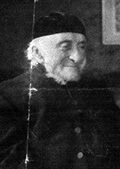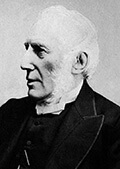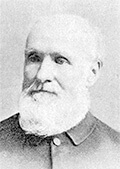the Third Week after Easter
free while helping to build churches and support pastors in Uganda.
Click here to learn more!
Bible Commentaries
Commentary Critical and Explanatory on the Whole Bible Commentary Critical
Old Testament
New Testament
At a time when the theological winds seem to change direction on a daily basis, the Commentary Critical and Explanatory on the Whole Bible is a welcome breath of fresh air from conservative and orthodox teachers of the Christian faith. This commentary has been a bestseller since its original publication in 1871 due to its scholarly rigor and devotional value. Robert Jamieson (1802-1880), Andrew Robert Fausset, and David Brown(1803-1897) have crafted a detailed, yet not overly technical, commentary of the Bible that holds to the historic teachings of orthodox Christianity. Commentary Critical and Explanatory on the Whole Bible is based on a detailed exegesis of the scriptures in the original languages and is a "must have" for those who are interested in a deeper appreciation of the Biblical text.
The designation of this electronic edition of the commentary as expanded refers to the editor's preference for complete words rather than abbreviations in the commentary (with the exception of Scripture references); the addition of white space in layout by placing on new lines the portion of the Scripture on which commentary has been provided by the authors; the replacement of the standard abbreviations "ch." and "vs." in citations with a complete reference to the Bible book, chapter, and verse; the rendering of the abbreviation of standard reference works by Greek and Latin Fathers in full English titles. The purpose of these expansions is to make the Commentary more readable and accessible to the modern reader.
It is worth noting that in the printed version, errors in spelling, punctuation, numbering, cross references have followed throughout the printing history of this one-volume edition of the Commentary. This electronic edition, then, may represent the first corrected edition.
Robert Jamieson D.D. (1802-1880). Jamieson was the son of a baker in Edinburgh, born there on Jan 3, 1802. He was educated at the high school and entered Edinburgh University with the intention of of studying for the medical profession. However, before completing his studies Jamieson decided to devote himself to the ministry, gaining license as a preacher in 1827. In 1848, the University of Glasgow conferred upon him the degree of Doctor of Divinity.
For many years Jamieson took a prominent part in ecclesiastical business and in 1872 he was unanimously chosen moderator of the General Assembly. He continued to occupy his place as minister of St. Paul's until his death on October 26, 1880. Jamieson specially charged himself with the oversight of young men studying for the ministry, and his students' class exercised an important influence throughout the church.

Andrew Fausset
Andrew Fausset, A.M. (1821-1910). Fausset was the son of the Rev. William Fausset by his wife Elizabeth, daughter of Andrew Fausset, provost of Sligo; the family was of French origin. Educated first at Dungannon Royal School, he obtained a scholarship at Trinity College, Dublin in 1838. Gaining prizes and awards there, he graduated B.A. in 1843 (senior moderator in classics), and won the vice-chancellor's Latin verse prize both that year and in 1844. He obtained the divinity testimonium (second class) in 1845, and graduated M.A. in 1846, proceeding B.D. and D.D. in 1886.
On graduating, Fausset became an academic coach at Trinity. He was ordained deacon in 1847 and priest in 1848 by Edward Maltby, the Bishop of Durham, and served from 1847 to 1859 as curate of Bishop Middleham, a Durham colliery village. From 1859 until his death he was rector of the parish of St Cuthbert's Church, York.

David Brown
David Brown (1803-1897). Brown was born at Aberdeen Aug. 17, 1803 and died there July 3, 1897. He studied at the University of Aberdeen (M.A., 1821); was licensed 1826, and was assistant to Edward Irving in London 1830-32; was ordained minister of a country chapel six miles southwest of Banff 1836; he went with the Free Church 1843, and the same year became minister of St. James, Glasgow; was elected professor of apologetics, church history, and exegesis of the Gospels at the Free Church College, Aberdeen, 1857; elected principal 1876, and resigned his professorship 1887.
He was a director of the National Bible Society of Scotland, one of the founders of the Evangelical Alliance, was deeply interested in the Alliance of the Reformed Churches and a member of the third General Council at Belfast, 1888. He was an opponent of Robertson Smith in the controversy which resulted in the dismissal of the latter from Aberdeen, and as a member of the New Testament revision company took a highly conservative position. He was moderator of the General Assembly of the Free Church in 1885.
